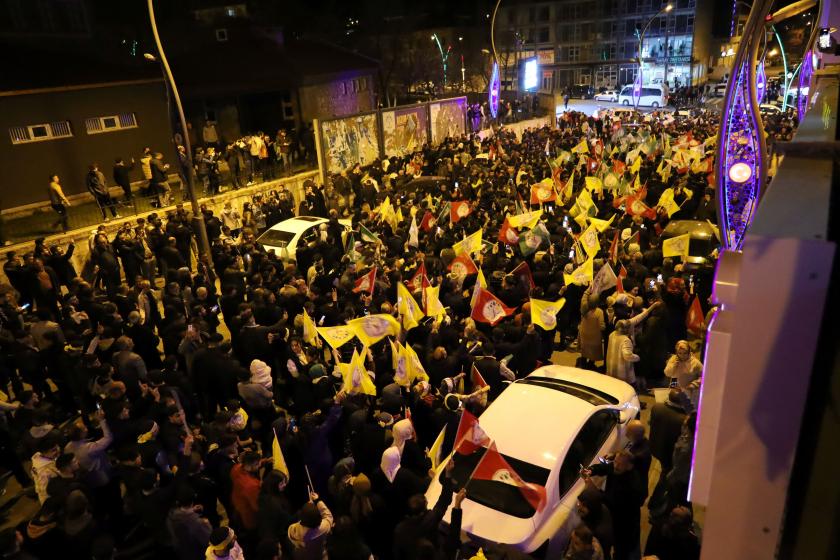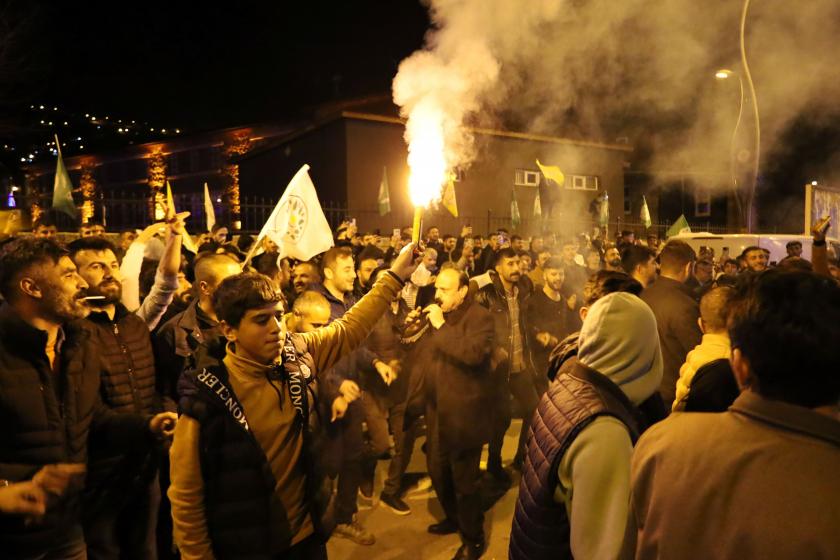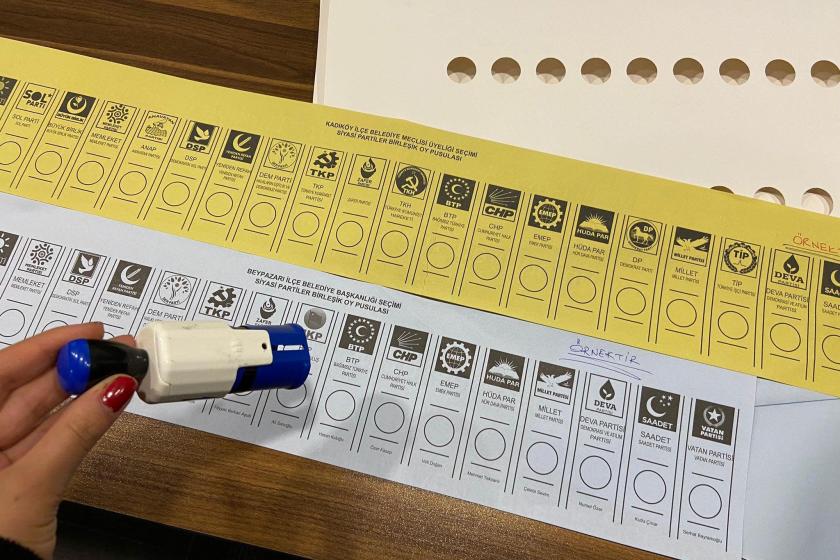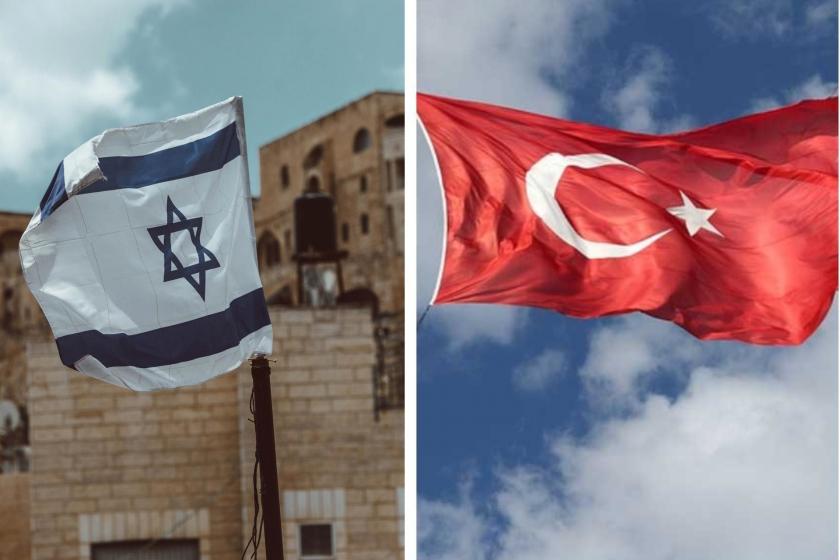The ‘Justice March’ that started on 17th June in Ankara and ended with a mass rally in Istanbul on 9 July set the bar for the struggle for freedom and democracy in Turkey.
Following the elections of 7 June and referendum of 16 April, now with the ‘Justice March’, the masses demanding democracy and freedoms showed that they are not content with just making demands and be spectators to discussions between parliamentary parties. They will act on their demands, turn them into action at the ballot box and out on the streets with protests.
The masses became the centre of attention with their demands and unity for democracy, rights and freedoms for democratic powers and progressive circles in Turkey.
Kılıçdaroğlu joined the debate by declaring the manifesto with 10 demands the Maltepe rally in Istanbul.
The 10 demands declared as “urgent”, shared in detail in Evrensel and other media organisations, would be countersigned by those that attended and supported the Justice March, as well as those citizens of Turkey with a moral compass.
However, it is a serious possibility that this “urgent call” can turn into a script that fails the to meet the need on the ‘field’, or more precisely inhibits rather than raises the struggle of the forces on the ‘field’; one that leads to “internal frictions” among those forces. This is because the script that everyone can countersign irons over some of the burning and concrete issues at a critical time the country is going through.
In reducing the “peaceful resolution of the Kurdish issue” to the “release of imprisoned MPs” and “the ending of all undemocratic practices that disrupt our collective peace on the basis of equal citizenship”, this call prefers ‘ambiguity’ on this most important issue in Turkey, rather than challenging the chauvinist-nationalist “solution to the Kurdish issue by crushing it.”
The position of “sanctuary in ambiguity” in the call by Kılıçdaroğlu can also be seen in the foreign policy. The manifesto, calling for “a return to politics that treat all peoples and identities in Turkey in a fraternal and just manner; and to a peaceful foreign policy that respects international laws” displays a formulation that seems to have no faults intellectually. However, this formulation does not give an explanation for what is happening in the ‘field’. Because the foreign policy of Turkey is not bound by discourse; it also sends soldiers to the rest of the region, imposes regime change on its neighbours. Hence, the struggle for democracy needs to unite with a struggle for ‘peace’; a ‘struggle for peace’ that takes a direct stand against war and warmongering.
Considering the stance on this matter of CHP to date, the formulation in the manifesto becomes extremely inadequate.
These ambiguities are a matter that will certainly be discussed by Kurdish and other democratic forces. Both the nationalist clique within CHP itself and by the AKP-MHP-VP [AKP, Nationalist Peoples Party and Patriotic Party] forces will use these ‘ambiguities’ as the soft underbelly of the CHP and the forces of democracy and freedom that it will be a part of.
The current lack of a uniform front of democracy is the main reason for unity limited by certain demands, the ‘ineffectiveness’ of the working class in the struggle for democracy.
Undoubtedly, it is not possible to overcome this problem in a short time. It is also true that the developments mentioned above rapidly ripen the conditions for the class to enter the struggle in this area.
Current developments put two important duties in front of the party of the class and the advanced constituents of the working class, in terms of working class relationship with the struggle for democracy. The first; sections of the working class at the forefront of the struggle and combative trade unionists need to increase their efforts to take part, with all their resources, in the struggle for democracy. Combative unionist platforms, blocks, combative unions and unionists (central and branch administrators, representatives and other associations…) are important from this perspective.
The other duty that developments put in front of us; the intensification of the work to win over the most important sections of workers that are breaking away from the culture of AKP and MHP; demonstrated by the Metal workers’ resistance and the referendum. Since it is not possible to win those workers under the influence of the culture of -and politically attached to- the AKP and MHP over to the struggle for democracy.
Therefore, it has become clear that involvement of workers -easily united around class demands- in political struggle and winning them over to the struggle for democracy is imperative; to achieve unity of workers around their own demands, the stability of the struggle for democracy and the creation of a spine for the struggle. Following the referendum, it is evident that the effects of the ‘Justice March’ on workers will increase the impact of the work on gaining the working class over to the struggle for democracy. It is vital that both the advanced sections of the workers and the party of the working class take advantage of these developments for the benefit of not only the working class but also the struggle for democracy.
Following the 24 days ‘Justice March’, the Maltepe Square in Istanbul witnessed its biggest rally on Sunday.
It is somewhat traditional for those that organise it to claim that participation is higher than it actually was (CHP claims that 2.5 million people took part) and that opponents to claim it is lower. For example, MelihGökçek [Mayor of the capital, Ankara], claims that “at most, 85 thousand people were at the rally”, whereas Abdurrahman Dilipak [columnist for the conservative daily YeniAkit] claimed a figure of 220 thousand. He has however rapidly deleted this figure from his social media account!
Another participant that joined the arguments about the number of participants at the rally is Istanbul Governor’s Office!
The Governor’s Office traditionally does not give numbers of participants for rallies; it did not challenge a claim by AKP that 2 million people attended an AKP rally that had half the number of participants of today’s rally but claimed in a written statement that participants at the ‘Justice Rally’ as 175 thousand!
This demonstrates the level of partisanship of the Governor’s Office!
It is true that the park that surrounds Maltepe Square was maybe filled by more people than there was in the Square itself.
Hence attendance at the Maltepe rally is comparable to the Yenikapı rally that the partisan media claimed was “attended by 5 million people”.
Furthermore, despite the lack of security measures, the crowd managed to keep discipline.
AKP will not be able to boast about mass rallies that it so far claimed “only AKP can stage”; it will not have the usual affect even if it made such a claim. One of the reasons for the reaction and attempts to downplay, in the ranks of AKP, the number of participants is a realisation of the erosion of ground under their feet. Another reason is that boasting about “great rallies” has slipped from its grasp.



